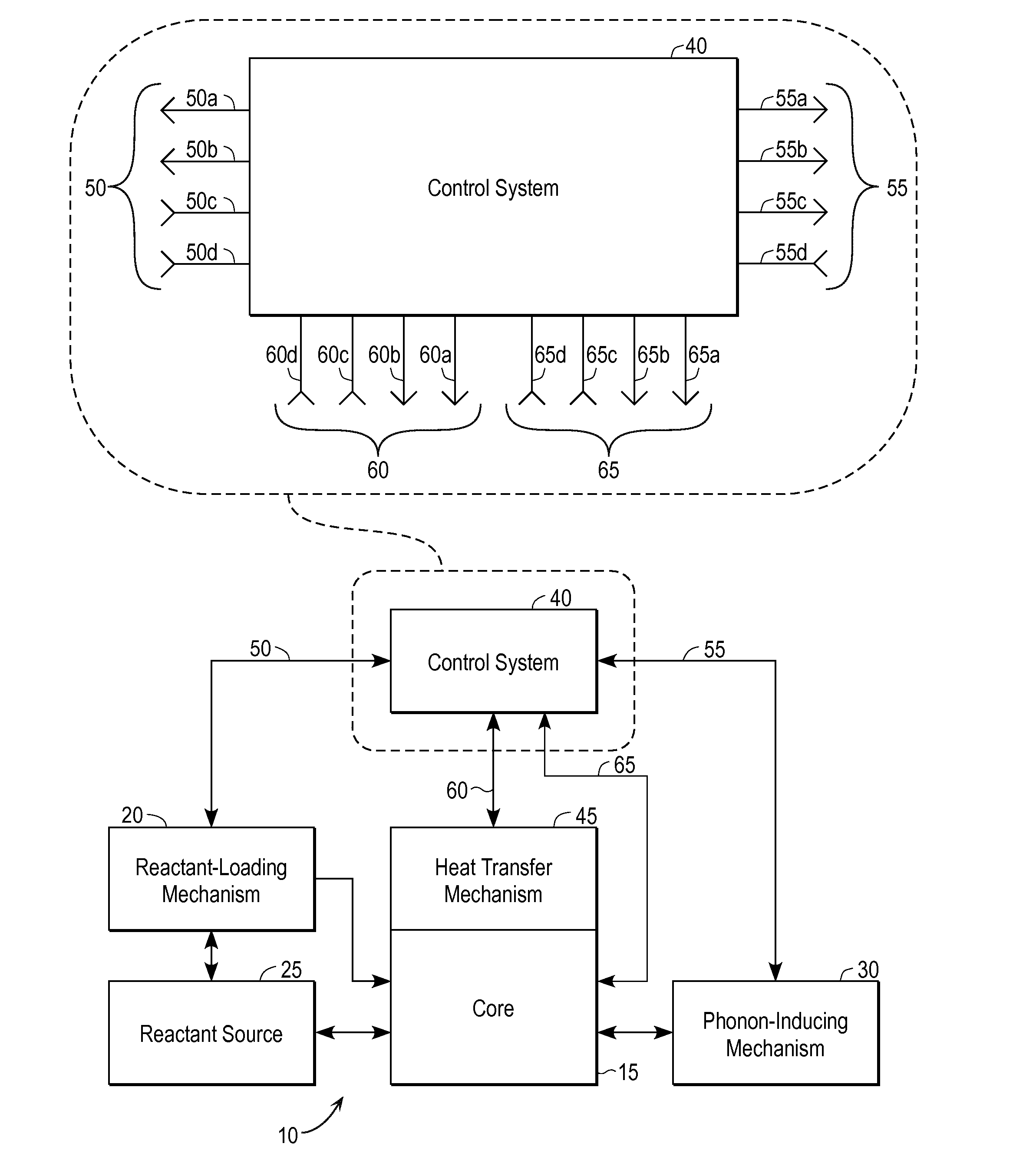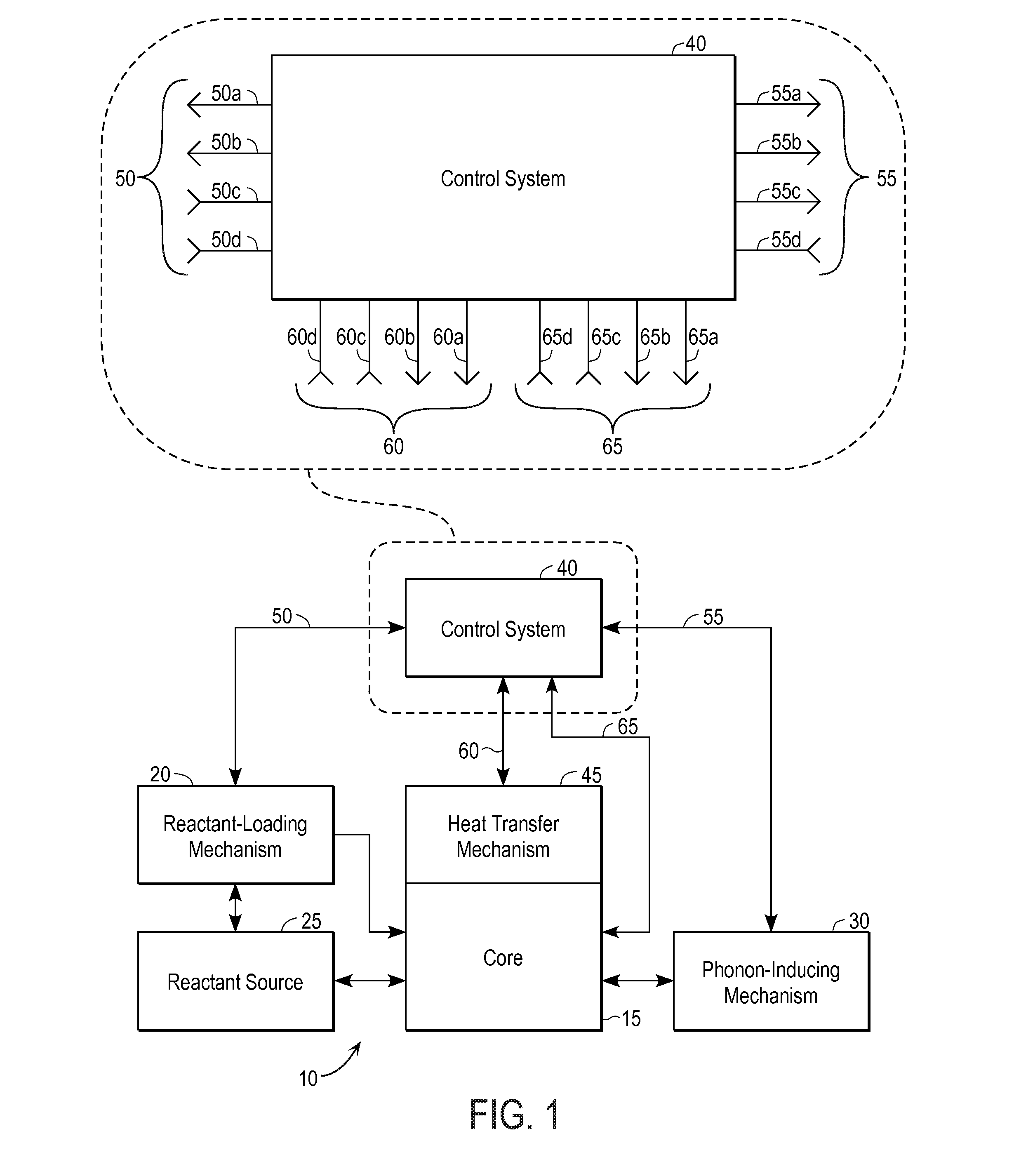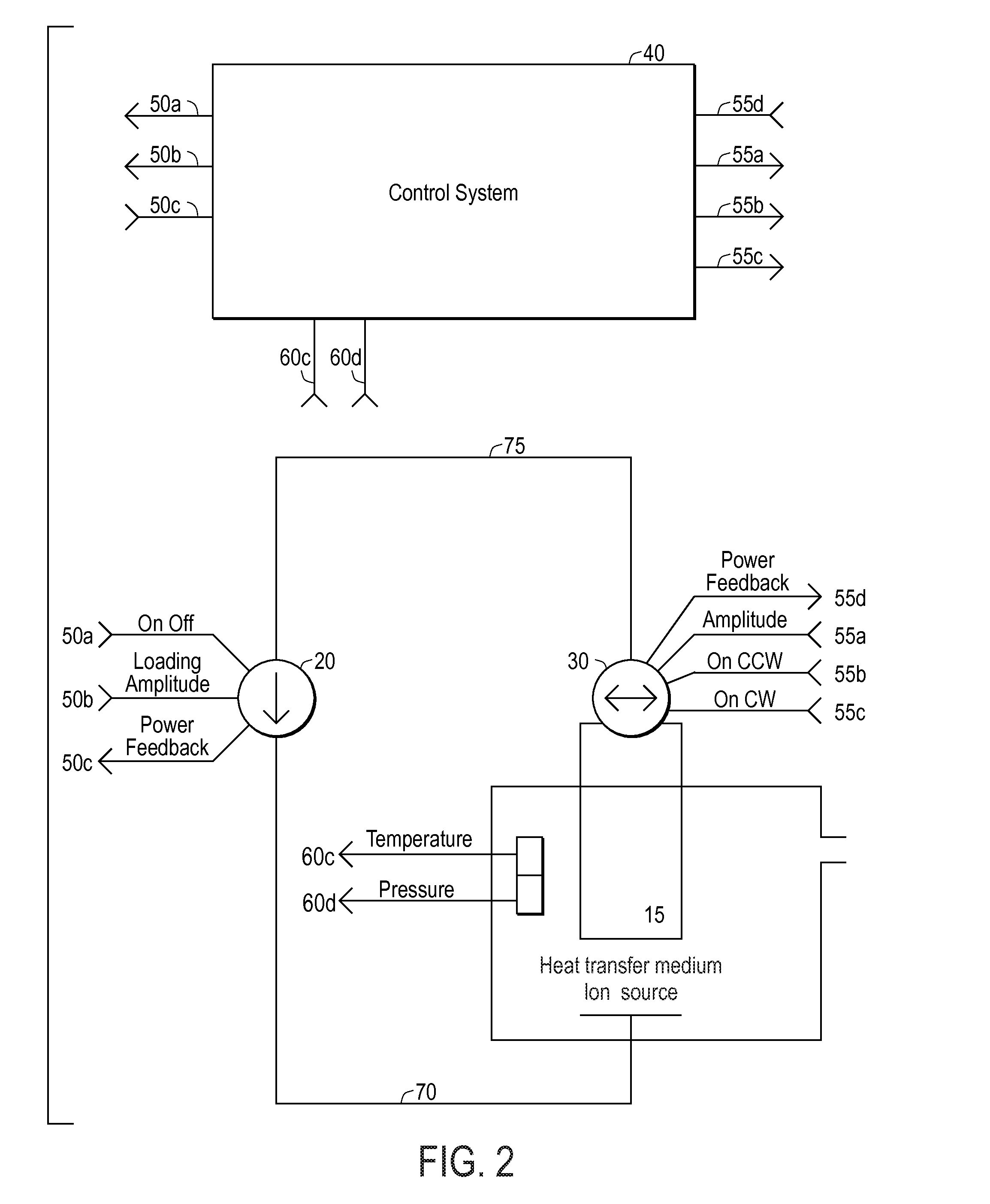Energy generation apparatus and method
a technology of energy generation apparatus and method, applied in nuclear reactors, nuclear engineering, greenhouse gas reduction, etc., can solve the problems of difficult, if not impossible, and difficult to extract more energy than is used in instigate reaction, so as to avoid the destruction of the core and avoid the effect of the core destruction
- Summary
- Abstract
- Description
- Claims
- Application Information
AI Technical Summary
Benefits of technology
Problems solved by technology
Method used
Image
Examples
Embodiment Construction
Overview
[0032]FIG. 1 is a very high level schematic representation of a Quantum Fusion reactor 10 encompassing a number of embodiments of the present invention. At the heart of the reactor is a reaction matrix or core 15 capable of phonon propagation. The general operation is for a reactant-loading mechanism 20 to load core 15 with reactant (e.g., protons) from a reactant source 25, and generate phonons in the core material using a phonon-inducing mechanism 30. A control system 40 activates and monitors reactant-loading mechanism 20 and phonon-inducing mechanism 30.
[0033]The phonon-inducing mechanism may stimulate phonons in the core directly using one or more means such as sonic / ultrasonic waves, current, or heat. Phonon energy causes displacement of the core lattice nuclei from their neutral positions. In the case where this displacement moves lattice nuclei closer together the density increases and is further increased by the presence of hydrogen nuclei (1H (protium), 2H (deuteri...
PUM
 Login to View More
Login to View More Abstract
Description
Claims
Application Information
 Login to View More
Login to View More - R&D
- Intellectual Property
- Life Sciences
- Materials
- Tech Scout
- Unparalleled Data Quality
- Higher Quality Content
- 60% Fewer Hallucinations
Browse by: Latest US Patents, China's latest patents, Technical Efficacy Thesaurus, Application Domain, Technology Topic, Popular Technical Reports.
© 2025 PatSnap. All rights reserved.Legal|Privacy policy|Modern Slavery Act Transparency Statement|Sitemap|About US| Contact US: help@patsnap.com



